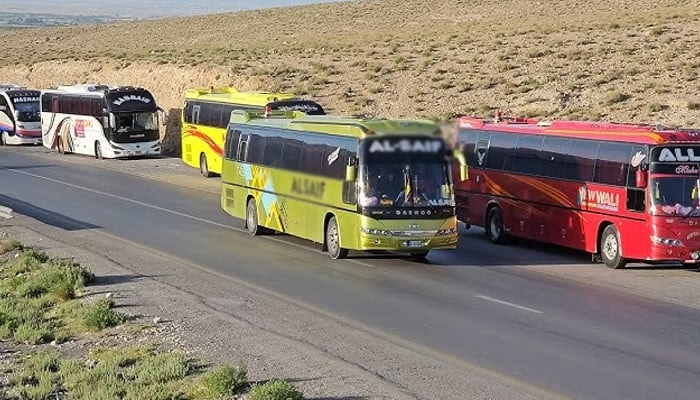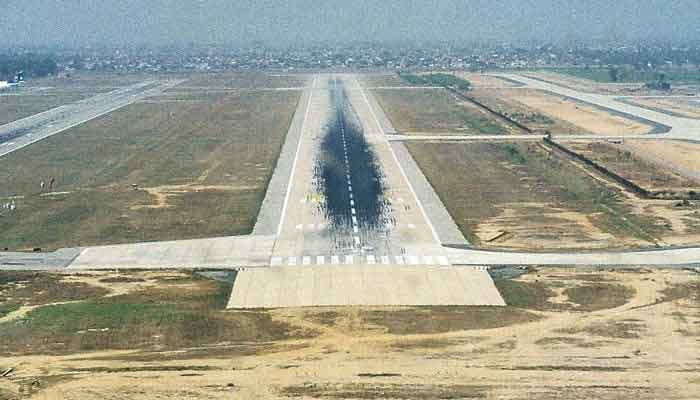In a recent development aimed at enhancing public safety, authorities in Quetta have decided to prohibit public transport from traveling at night. The decision was made in a high-level meeting chaired by Commissioner Quetta, Hamza Shafqat. This move is expected to ensure better security measures and prevent unforeseen incidents during nighttime travel.
Key Decisions Taken in the Meeting
The meeting focused on improving the overall security and operational efficiency of public transport in Quetta. Several important measures were discussed and implemented to safeguard passengers and ensure compliance with transportation regulations.
1. Ban on Nighttime Travel
The primary decision taken was to restrict public transport from traveling during nighttime hours. This means that buses, coaches, and other public transport vehicles will not be allowed to operate at night. Authorities believe that this will help in reducing security risks, ensuring safer travel conditions for passengers and transport workers alike.
2. Timely Departure of Buses and Coaches
To counter any inconvenience caused by the travel ban, authorities have emphasized the importance of punctual departures. Bus and coach operators have been directed to strictly follow their schedules to minimize delays and disruptions for passengers traveling during the daytime.
3. Installation of Trackers and CCTV Cameras
To further enhance security, all public transport vehicles are required to install and activate GPS trackers and CCTV cameras. These measures will help in monitoring vehicle movements, ensuring compliance with safety guidelines, and providing real-time tracking in case of emergencies.
4. Cooperation from Transporters
All transport operators have been instructed to fully cooperate with the government’s directives. The transport sector plays a crucial role in the city’s mobility, and compliance with these new rules will help maintain order and security within the public transport system.
Why This Decision Was Taken
The move to restrict public transport at night is driven by multiple factors, including security concerns and passenger safety. In recent years, incidents of road accidents and security threats have been reported during nighttime travel. By implementing this restriction, authorities aim to:
- Reduce Security Risks: Limited law enforcement presence at night increases risks of criminal activities such as hijacking and robberies. The ban is expected to curb such incidents.
- Enhance Road Safety: Poor visibility and driver fatigue contribute to accidents at night. By restricting nighttime travel, authorities hope to decrease road mishaps.
- Improve Monitoring and Compliance: The use of trackers and CCTV cameras will ensure that transport operations are transparent and well-regulated.
Impact on Passengers and Transport Operators
The new regulations will affect both passengers and transport service providers. Commuters who frequently travel at night will need to adjust their schedules to fit within the permitted travel hours. Transport operators, on the other hand, will have to ensure compliance with the new security measures while maintaining service efficiency.
However, authorities have assured the public that these measures are in place for their safety and well-being. With proper implementation and cooperation from transporters, the transition is expected to be smooth.
Public Reaction and Expectations
The decision has received mixed reactions from the public. While some travelers have expressed concerns about the inconvenience of limited travel hours, many have welcomed the move, citing security and safety as top priorities.
Local authorities have urged passengers to plan their journeys accordingly and utilize available travel options during permitted hours. The government has also reassured citizens that they will continue to monitor the situation and make necessary adjustments based on public feedback.
The ban on nighttime public transport in Quetta is a significant step towards enhancing passenger safety and improving overall transport security. With stricter monitoring, technological advancements such as GPS tracking and CCTV surveillance, and better cooperation between authorities and transport operators, this initiative aims to create a safer and more organized public transport system in the city.
As this policy is implemented, authorities will continue to assess its effectiveness and make adjustments where needed. Passengers and transport operators alike are encouraged to comply with these new regulations to ensure a smooth transition and a safer travel experience for everyone.



